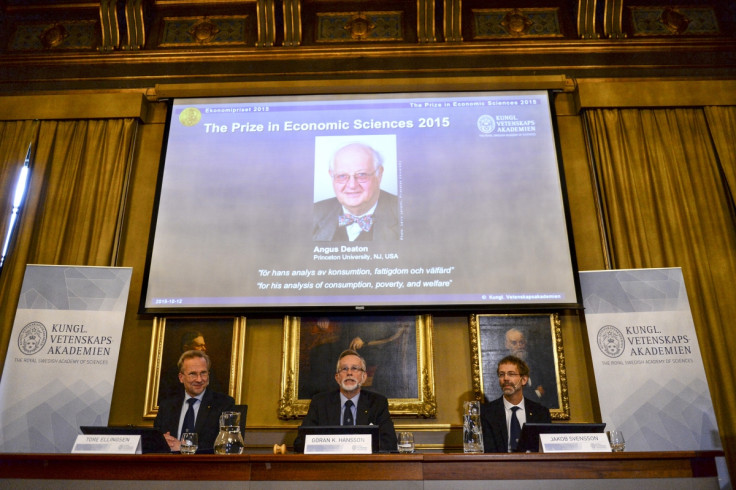Nobel Prize in Economics 2015: Princeton University professor Angus Deaton wins £690,000

Angus Deaton, Edinburgh-born Professor of Economics and International Affairs at Princeton University, has been named winner of the Nobel Prize for Economic Sciences on 12 October. The Nobel Committee lauded him for his "analysis of consumption, poverty, and welfare".
The committee said that "understanding and measuring consumption is a complex endeavour. However, thanks to the work of Angus Deaton, we today have a much deeper understanding of a number of core issues related to consumption."
The Nobel prize for Economic Sciences was introduced in 1969 and the laureate is selected by the Royal Swedish Academy of Sciences who also choose the recipients of Nobel prizes in Physics and Chemistry.
BREAKING NEWS The 2015 Prize in Economic Sciences is awarded to 69 years old Angus Deaton @Princeton #NobelPrize pic.twitter.com/1XJL8JsHem
— The Nobel Prize (@NobelPrize) October 12, 2015Deaton has been awarded the prize for three main achievements: his work on Demand Systems; his work linking consumption and income at micro and macro levels; and his work measuring and understanding living standards and poverty in developing countries. The winner of the Nobel Prize in Economic Sciences also receives prize money of SEK8m (£690,000).
In his book The Great Escape: Health, Wealth and the Origins of Inequality, Deaton took "an in-depth look at the historical and ongoing patterns behind the health and wealth of nations." Deaton argued that "international aid has been ineffective and even harmful." Suggesting instead that "reforming incentives to drug companies and lifting trade restrictions" would allow the developing world to prosper.
According to the Economist, the book argues that "the flow of foreign money undermines governments' incentives to raise money from their own taxpayers, which in turn requires growth-friendly policies and reformed institutions. Instead it shores up ill-functioning governments, the very misfortune holding back poor countries."
69-year-old Angus Deaton was born in Edinburgh in 1945. He completed his PhD at Cambridge University in 1974. Deaton taught at Cambridge and the University of Bristol before moving in 1983 to the United States, where he now holds dual citizenship, to take a position at Princeton University.
© Copyright IBTimes 2025. All rights reserved.




















